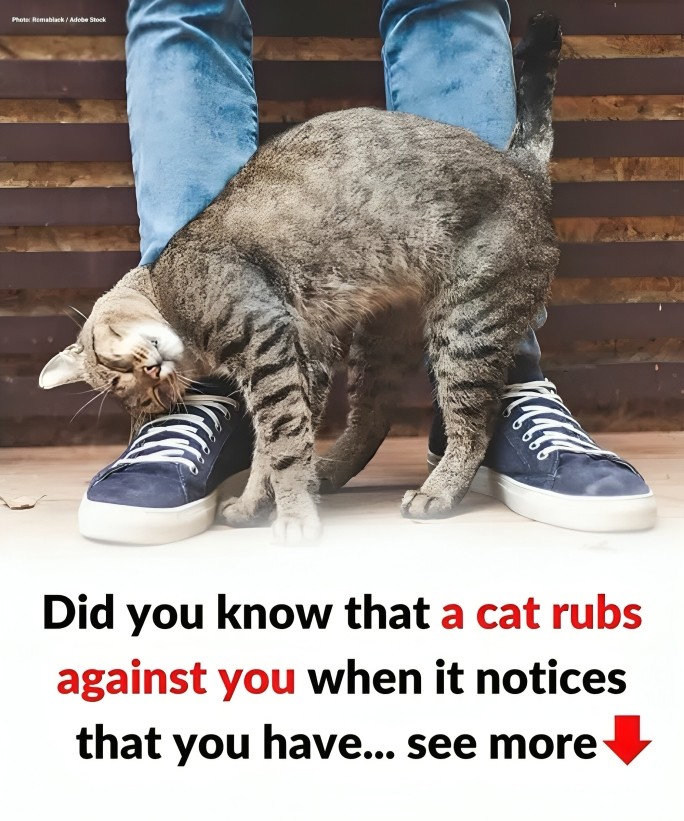It’s a quiet morning. You’re sipping your coffee, scrolling through your phone, when suddenly—there’s a familiar brush against your leg. Soft fur, gentle pressure. You look down, and there’s your cat, tail up, head tilted, rubbing along your side like a furry train on a single-track line.
At first glance, it’s just a cute little greeting. Maybe your cat’s hungry. Maybe it wants your attention. Maybe it’s being playful. But here’s the thing — when a cat rubs against you, it’s not just being affectionate. It’s making a statement.
The Science Behind the Rub: Scent as a Language
Cats have scent glands in several areas: around their cheeks, forehead, chin, base of the tail, and even on their paws. These glands release pheromones — chemical messages that animals use to communicate everything from territory to emotion to ownership.

When your cat rubs up against you, it’s leaving some of that scent behind. It’s a way of saying:
“You belong to me.”
To a cat, scent is memory. Scent is trust. Scent is identity. In the feline world, rubbing is a behavior called “bunting,” and it’s one of the most intimate gestures a cat can offer. Think of it like a signature, a stamp, a warm little “hello, I love you” that’s invisible to everyone else but unmistakably present in the bond you share.
It’s Not for Everyone
What’s more touching is this: cats don’t do this to just anyone.
Unlike dogs, who are often open-hearted and generous with affection, cats are selective. Earnest. Intentional. If a cat rubs up against you, it’s a privilege—a mark of deep trust.
It may have taken weeks, even months, to earn that level of closeness. And now? You’ve become part of their inner world. A familiar scent. A safe place. A chosen one.
More Than Affection — It’s Emotional Memory
Cats don’t remember us the way humans remember each other. They don’t memorize our faces in detail or recall what we wore yesterday.
Instead, they remember how we smell. How we move. How we make them feel.
And when they rub up against us, they’re not just leaving their scent—they’re renewing their memory of us. Reinforcing that bond. Saying:
“This feels right. You feel like home.”
In moments like these, you’re not just a pet owner. You’re part of your cat’s identity. A part of their emotional map.
So Next Time…
The next time your cat weaves between your legs, or leans its cheek against your hand, take a moment. Don’t just brush it off as a casual habit. That quiet, unassuming little gesture is actually a powerful form of connection.
It’s love, expressed in the subtle, ancient language of scent and trust.
Because to a cat, love isn’t always loud.
Sometimes, it’s just a gentle rub —
And the quiet, powerful message:
“You’re mine. And I feel safe with you.”





